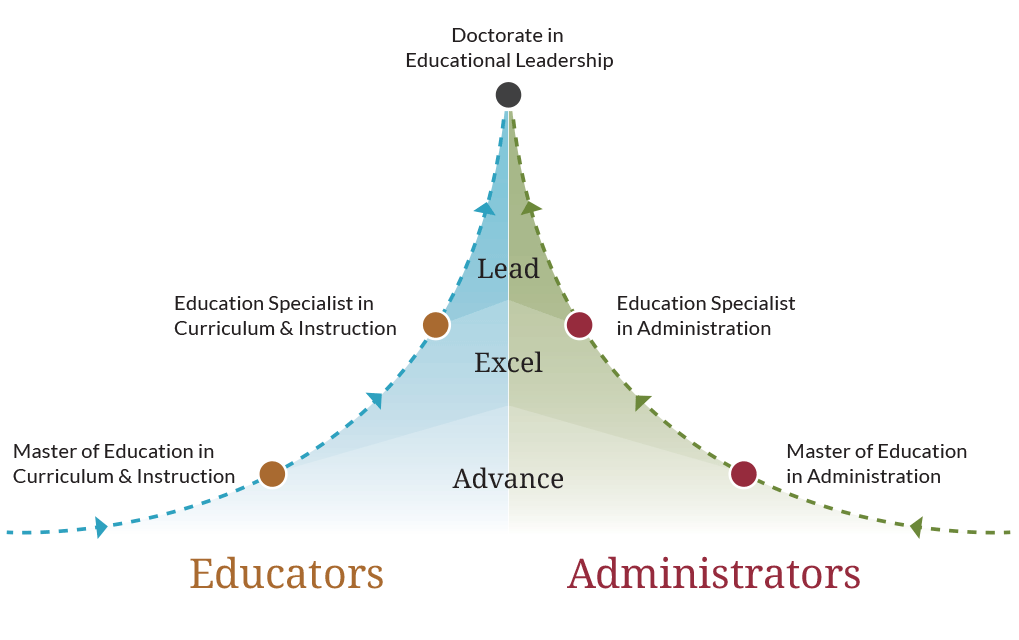The value of an advanced education degree for teachers: Salary and career advancement
The prevalence of advanced degrees among teachers and education professionals alike has grown over the last decade according to the research by the National Center for Education Statistics (NCES). Some 58 percent of public school teachers had a graduate degree in the 2017-2018 school year – a 10 percent increase from 1999-2000.
One factor contributing to the rise of post-baccalaureate degrees among educators is income. Advanced degrees have typically been correlated with higher salaries, and in many school districts, teachers receive automatic pay increases after obtaining a master’s degree.
The National Council on Teacher Quality (NCTQ) finds that “among the largest districts in the country, 88 percent offer an increase in pay to teachers who earn master’s degrees.” In some districts, this increase is based on established salary ranges that specifically account for a master’s degree at every level of professional experience. Alternatively, some school districts provide a yearly stipend to teachers with an advanced degree. According to NCTQ, on average, teachers with a master’s degree can earn an additional $10,000 per year by the time they reach the top of their salary scale. The difference is less substantial at the beginning of one’s career, where a master’s degree amounts to roughly an additional $2,800 per year.
Beyond income alone, for some teachers pursuing an advanced degree is a step toward transitioning into an administrative position. For example, today, the vast majority of public school principals hold a post-baccalaureate degree. In the 2017-2018 school year, NCES found that among public school principals “62 percent had a master’s degree, 26 percent had an education specialist degree, and 11 percent had a doctor’s or first-professional degree.” Consequently, only 2 percent of public school principals had a bachelor’s degree or lower.
In Missouri, William Woods University has a long tradition of training a significant number of the Missouri school system’s leaders, through its top-ranked graduate education programs. Today, there are more than 570 William Woods graduates who are principals and more than 120 graduates who are school district administrators.
Whether you are looking to boost your earning potential, advance toward a position of leadership or simply become a more effective teacher, William Woods University offers a range of specialized education degrees at the graduate level:
● Master of Education is ideal for teachers and administrators with leadership as a career goal. William Woods University offers several specialized MEd programs with focus areas such as administration, athletics/activities administration, curriculum and instruction, reading instruction and more.
● Education Specialist in Curriculum Leadership is a master plus thirty-hour program that builds upon the skills developed in the MEd degree. The program is designed for advanced leadership training for those who desire to become leaders for change in the classroom or in the administration of a school district.
● Doctorate in Education Leadership is geared towards those who have already completed their Educational Specialist degree. The program provides graduates with advanced training while developing their abilities in the scholarly study of issues that challenge education.

To learn more about graduate education programs at William Woods University, visit our graduate education programs page.

